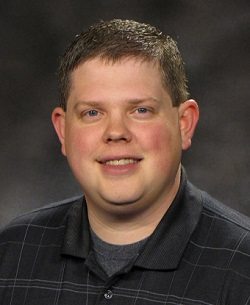Last week we began to look at Jesus’ teaching on money in the Sermon on the Mount. To say it is about money is actually to limit Jesus’ instruction. In general, his teaching is about things that we treasure in this life. If we treasure things that are earthly–that is, physical, and therefore destructible–then our lives are bound for anxiety and worry because the very nature of physical things is that they will not and cannot last. But, on the other hand, if what we treasure are the things of heaven, we open up ourselves to a life of blessing, because what we treasure cannot be taken away from us. To test ourselves on this, Jesus asks us to examine where we invest our treasure–our time, money, and resources. This is the only sure way to find out where our heart truly lies.
But having said that, there is probably one thing that needs to be cleared up that can be easily confused. Often, when we think about “heaven,” we think about some far off place where we will one day live after we die. Because we think of heaven in that way, there is some confusion about what it means to store up treasures in heaven. A common interpretation in this passage is that treasures in heaven have to do with souls we have helped saved during our lifetime that will one day share heaven with us. There is certainly some truth to this; that is a “heavenly treasure” if there ever was one. But that is not the only thing Jesus is getting at in this teaching. Jesus is talking about the things that we cherish. If what we cherish most is God, and therefore all that he wants and desires, including a love for our neighbor, then we live in a state where very little can disturb us, because everything we cherish is eternally protected and guaranteed. If, however, what we cherish are worldly things above the heavenly, then we are doomed to a life of anxiety and fear.
This is why Jesus says in Matthew 6:22 that the eye is the lamp of the body. If our eyes are good, and we cherish most the things of God, then our whole lives will be full of light. This does not mean we will not value earthly things, but simply that we value them in ways that are appropriate to reality. We use things to help us live well and glorify God. If, however, our eyes are bad and we cherish the things of this earth above God and his eternal kingdom, then our whole lives will be full of darkness. We won’t even be able to think right.
This leads then to a very simple conclusion. No one can serve two masters. One must take priority over the other. It may be true that for a while we can live under the allusion that we can, but eventually, some situation will force one to take priority over the other. Life is built to be this way. One can serve God, and use money and physical things. But one cannot serve money and God at the same time. Eventually our hunger for money and earthly things will drive us to do things contrary to God’s wishes. There is simply no way around this. One must take priority over the other, and unless we make a settled and purposeful decision to place God above all else, the power of money and earthly treasures will pull us toward sin.
All of this seems fairly obvious when stated as such, but history reminds us time and time again that we need the reminder. A large and growing population of Christian believers today believe that’s God’s intention for our life is to bless us with more and more earthly treasures; that God’s intention is that we should give a designated portion of our income (say, 10%), and then God will bless us with abundant wealth. But God makes no such promise. Often, our striving to live righteous lives will put us at odds with the very unrighteous economic systems we all live within. But even though God does not promise abundant wealth, he does promise adequate provision. We’ll pick up Jesus’ teaching about this next week. God bless!
(Don’t forget to join me for A Message from the Heart radio program Sunday evening at 8:00pm on KJAK 92.7FM, or streaming live at www.kjak.com)
Curtis Baker (curtisbaker@hotmail.com)
Write to: P.O. Box 157, Slaton, TX 79364


